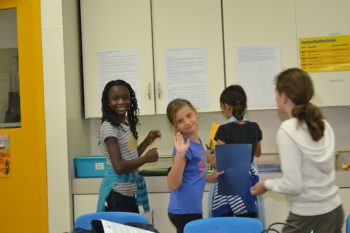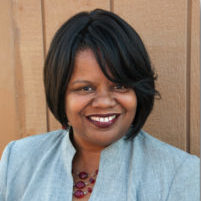 Teaching Our Children About the Black Lives Matter Movement
Teaching Our Children About the Black Lives Matter Movement
When teaching elementary students about the Black Lives Matter Movement, I describe what my life was like as an African American little girl. For example, when I was in elementary school, I did not get to hear Martin Luther King, Jr. give his original, “I have a Dream” speech. My teachers would play the speech for my class every year so that we could picture this amazing vision for America. Dr. King dreamed that one day black people would be judged by the content of their character, rather than the color of their skin.
My Second Grade Experience
I was in second grade when Dr. King, a preacher and civil rights activist, was killed. I can remember where I was in Brooklyn, New York with my aunt when I heard the news on the TV. I walked over to the steps and I sat down and cried. I was seven years old. I was hurt and sad. You see, at that age I understood that Dr. King was trying to get everyone to understand that Black Lives Mattered. He supported non-violent protests against anyone who would not treat black and brown people equally and with civility. At that time, black people could not sit on the front of buses. They could not vote. They were treated like objects instead of human beings. Many people thought that black people were strong. They would do cruel things to them like harassing them during daily life or spiting on them while passing by. People would beat up Black people for no reason and say bad things about them and to them. Black people were bullied for a long time in America. Unfortunately, this still happens today.
What Black Lives Matters to Me
After I share my story, I explain that the Black Lives Matter Movement was started by three women in 2013 to fight the injustices of black people that may include death, police brutality, laws that are not fair that include housing, economic challenges, and lack of opportunities (see www.tolerance.org). Then the students discuss and write a reflection on how bullying is a form of abuse that all students can relate by asking these questions:
- How do you feel when someone is mean to you?
- How do you stop the other person and what would you do in the future?
- Do you know any who participated in the Black Lives Matter Movement marches in the past year? What did you learn from this event??
- What can I do to stop bullying at school?
- What can I do to encourage kindness for all students?
Finally, the children reinforce their learning by (1) identifying what they learned about the Black Lives Matter Movement, (2) identify what worked or did not work to support their learning, (3) clarify how they will use this information with other school assignments, and (4) describe how they can use this information in their daily lives.
Added Resources
For more resources on educating children about the Black Lives Matter Movement, you can review the list of reading materials listed on my previous blog at https://genparenting.com/educators-reflection-on-george-floyds-death/#more-1478. Much success as you help your children understand the relevance of the Black Lives Matter Movement in all of our lives.
Hugs,
Yvette
Copyright (c) 2021 by GenParenting

Yvette King-Berg, is the Executive Director of Youth Policy Institute’s Charter Schools. She was the former California Charter Schools Association Vice-President of School Development and Outreach-Southern California. Ms. King-Berg has over thirty years of experience working with teachers, students, parents, and organizations in a variety of positions including Director, Assistant Director, Curriculum Advisor, Bilingual, and Title 1 Coordinators, classroom teacher (K-12) in Pasadena and LAUSD. She has been married for twenty-three years, and is the proud mother of her son, EJ, who attends UC Berkeley.

